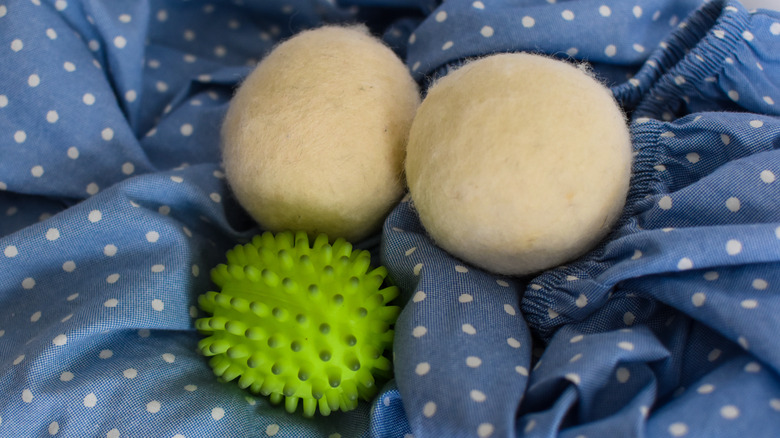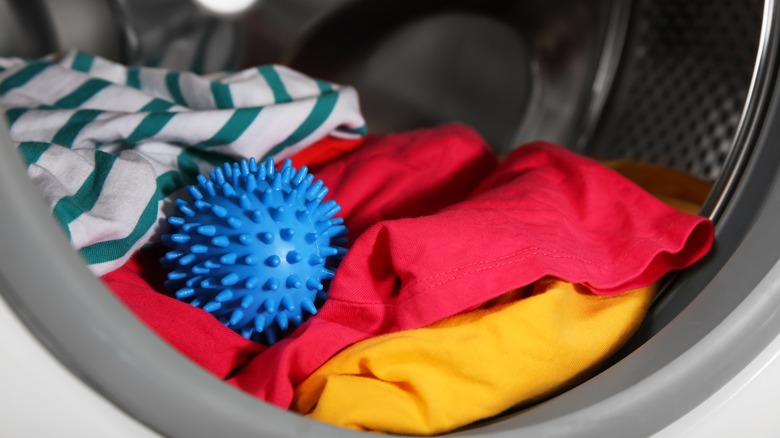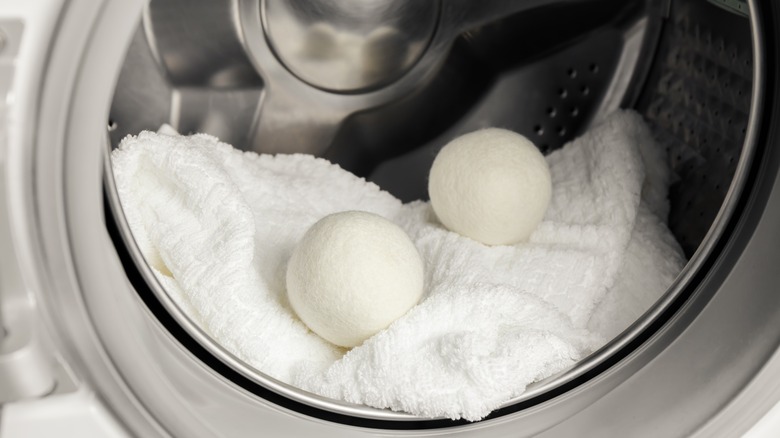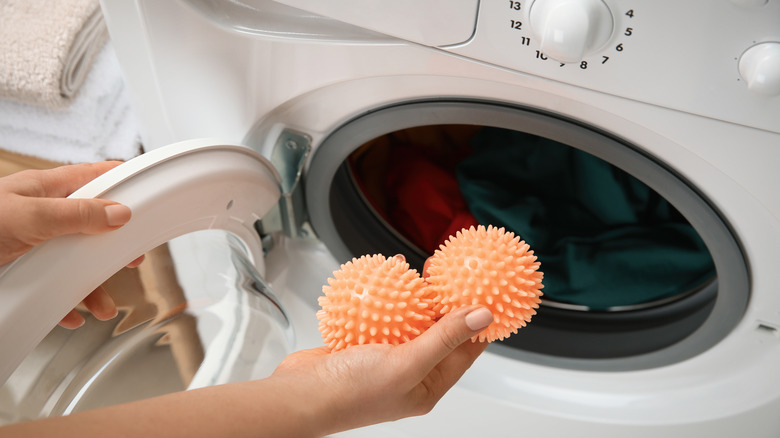Wool Vs. Plastic Dryer Balls: Which Are Better?
Unlike single-use laundry products like dryer sheets, dryer balls come packed with more advantages. They not only help make laundry less time-consuming but are also friendly to the environment. These products work by rolling between the layers of fabric, preventing them from clumping together and wrinkling during the process, per Maytag. The rolling and tumbling that happens during the drying cycle is responsible for circulating air between the fabrics which in turn makes the clothes dry faster.
Dryer balls are available in different sizes and materials, with two common types being wool and plastic. These balls are also quite easy to use; all you need to do is throw them into the dryer with your laundry and allow them to do their magic. Although both of these types of dryer balls work just fine, picking the right one for your needs is easier said than done. That said, here is a detailed breakdown of the differences between these two types of dryer balls with respect to performance, durability, and impact on the environment.
Performance comparison
Both plastic and wool dryer balls work well to separate clothes during the drying process; however, since you have to choose one, it is a good idea to go for the most effective. According to Parachute Home, wool dryer balls are often better when it comes to overall performance. This is because of their absorbent material that draws water away from the clothes allowing them to dry faster. In addition, wool dryer balls are also relatively bigger than their plastic counterparts, making them better at separating fabrics.
In contrast, it is worth mentioning that plastic dryer balls are often better at circulating air in between the clothes, which is quite essential in reducing the drying time. But if efficiency is your top priority, then you are better off going with the wool options because they are superior. On the other hand, if you don't really care how long your laundry will take to dry, either option will be ideal.
Durability
Different from their single-use counterparts, dryer balls will retain their usefulness for several cycles to come. Regarding wool dryer balls, these laundry products will give you about two to five years of service which translates to over 1,000 drying cycles, per Machine Lounge. Nonetheless, you should keep in mind that how long they will take to deteriorate depends on how often you use them. You will know it is time to get new wool dryer balls when they start breaking away and losing shape.
Plastic dryer balls on the other hand, tend to last longer than the wool options. They will offer you similar or slightly more years of use depending on how frequently you put them to work. These dryer balls tend to wear out gradually over time, losing their effectiveness. Some brands also crack after years of service in your dryer. One rule of thumb to observe when shopping for new dryer balls is to go for reliable brands that make quality dryer balls since they tend to last longer than the cheaper options.
Impact on the environment
The fact that these two options are reusable makes them better for the environment compared to single-use dryer sheets. However, when these two products are compared side by side, which option is friendlier for the environment? To begin, it's evident that wool dryer balls are made from biodegradable materials that easily decompose when disposed of. On the flip side, one of the biggest disadvantages of plastic alternatives is the material (via In The Wash).
Remember that plastic is a synthetic compound that is nonbiodegradable which could take centuries to start breaking down, therefore, you need to be careful where you dispose of them whenever you do a replacement. Although it is possible to recycle plastics, it is unfortunate to point out that some brands don't use recyclable types of plastics. It is good practice to make sure that the plastic dryer ball you choose can be recycled for the sake of the environment.



